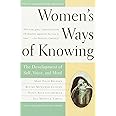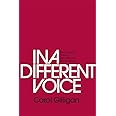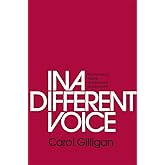
Amazon Prime Free Trial
FREE Delivery is available to Prime members. To join, select "Try Amazon Prime and start saving today with FREE Delivery" below the Add to Cart button and confirm your Prime free trial.
Amazon Prime members enjoy:- Cardmembers earn 5% Back at Amazon.com with a Prime Credit Card.
- Unlimited FREE Prime delivery
- Streaming of thousands of movies and TV shows with limited ads on Prime Video.
- A Kindle book to borrow for free each month - with no due dates
- Listen to over 2 million songs and hundreds of playlists
Important: Your credit card will NOT be charged when you start your free trial or if you cancel during the trial period. If you're happy with Amazon Prime, do nothing. At the end of the free trial, your membership will automatically upgrade to a monthly membership.
Buy new:
$19.99$19.99
Ships from: Amazon.com Sold by: Amazon.com
Save with Used - Good
$9.33$9.33
Ships from: Amazon Sold by: eCampus_

Download the free Kindle app and start reading Kindle books instantly on your smartphone, tablet, or computer - no Kindle device required.
Read instantly on your browser with Kindle for Web.
Using your mobile phone camera - scan the code below and download the Kindle app.

Women's Ways of Knowing (10th Anniversary Edition): The Development of Self, Voice, and Mind Paperback – January 9, 1997
Purchase options and add-ons
- Print length288 pages
- LanguageEnglish
- PublisherBasic Books
- Publication dateJanuary 9, 1997
- Dimensions6 x 0.75 x 9.25 inches
- ISBN-100465090990
- ISBN-13978-0465090990
- Lexile measure1180L
Discover the latest buzz-worthy books, from mysteries and romance to humor and nonfiction. Explore more
Frequently bought together

Customers who viewed this item also viewed
Editorial Reviews
Review
About the Author
Blythe McVicker Clinchy is a professor of psychology at Wellesley College and lives in Boston, Massachusetts and Marshfield, Vermont.
Nancy Rule Goldberger is a member of the psychology faculty of The Fielding Institute in Santa Barbara, California, and lives in Housatonic, Massachusetts and New York City.
Jill Mattuck Tarule is a professor and the dean of the College of Education and Social Services at the University of Vermont and lives in Essex, Vermont.
Product details
- Publisher : Basic Books; Revised edition (January 9, 1997)
- Language : English
- Paperback : 288 pages
- ISBN-10 : 0465090990
- ISBN-13 : 978-0465090990
- Lexile measure : 1180L
- Item Weight : 12.8 ounces
- Dimensions : 6 x 0.75 x 9.25 inches
- Best Sellers Rank: #155,085 in Books (See Top 100 in Books)
- #312 in Feminist Theory (Books)
- #433 in Women in History
- #532 in Medical General Psychology
- Customer Reviews:
About the authors

Discover more of the author’s books, see similar authors, read book recommendations and more.

Discover more of the author’s books, see similar authors, read book recommendations and more.

Discover more of the author’s books, see similar authors, read book recommendations and more.
Customer reviews
Customer Reviews, including Product Star Ratings help customers to learn more about the product and decide whether it is the right product for them.
To calculate the overall star rating and percentage breakdown by star, we don’t use a simple average. Instead, our system considers things like how recent a review is and if the reviewer bought the item on Amazon. It also analyzed reviews to verify trustworthiness.
Learn more how customers reviews work on AmazonCustomers say
Customers find the book provides insightful and thought-provoking content on women's minds. They describe it as a good read that sheds new light on learning processes. Readers also mention the book is impressive and excellent for academic purposes.
AI-generated from the text of customer reviews
Customers find the book insightful and thought-provoking. They say it sheds new light on their learning processes and debates. Readers describe the book as enriching and ground-breaking, helping with writing memoirs.
"...This book was fascinating, and difficult to put down -- certainly a must read." Read more
"...Reading this book has shed a new light on my own learning processes and on the kinds of debates I have with friends, whether or not they are highly..." Read more
"I got this for a class assignment/product but found it to be interesting and a pretty good read." Read more
"If you want a good read that is both academic, deep, enriching, and mind consuming get this book. It reads like a nickel novel and is impressive...." Read more
Customers find the book interesting and worth reading. They describe it as a fantastic work written in the 1980s that still has much to teach us today. Some readers mention it's okay for a textbook, but wouldn't read for leisure. Overall, they find it an excellent, impressive, and worthwhile read.
"...Fantastic work written int he 1980's which still has so much to teach us today." Read more
"...a class assignment/product but found it to be interesting and a pretty good read." Read more
"If you want a good read that is both academic, deep, enriching, and mind consuming get this book. It reads like a nickel novel and is impressive...." Read more
"...Makes for thoughtful read nevertheless." Read more
Top reviews from the United States
There was a problem filtering reviews right now. Please try again later.
- Reviewed in the United States on June 21, 2012There are five categories of women who know (or think).
First, the "silent knower" comprised only 2% of the survey group of 135 women--these women were deprived socially, economically, and educationally, which is why they viewed words as weapons to diminish people. Thus these women did not tend to have dialogue within themselves (pp. 24-25). They tended not to have confidence to learn from either experience or words (p. 26). They did not seem to relate to others in a sense of "we-ness" (p. 27). Such women tended to receive the labels as immature, impulsive, acting-out, hyperactive, delinquent, and of a short attention span (p. 28). This woman is common in Third World countries, and must be integrated with more developed women in order to open her horizons. An approach to this kind of woman would be "to speak" to her through actions of kindness and generosity.
Second, the "received knower" sees ideas as concrete and falling into dualistic modes (right/wrong, true/false, etc.)--these women are apt "to see the emperor in full regalia" because they conform to authorities as sources of truth (pp. 37-38), and these authorities (usually male--p. 45) are infinitely capable of receiving knowledge and retaining the "right answer" with impeccable precision (p. 40). Paradox is therefore inconceivable to these women, which is why they have trouble with understanding poetry, for example (pp. 41-42). They strive to subordinate their own actions to the symbolic representations of the good that they are able to hear in the voices of others (p. 46). These women are thus followers--they look to others as their "fount of truth," and therefore need "midwife teachers" (pp. 217-19) in order to put these women into conversation with other voices past and present.
Third, the "subjective knower" views the fountain of truth as within, and, therefore, can negate the answers of the outside world (pp. 54, 61, 69). (One-half of the 135 women interviewed were in this category--p. 55.) She distrusts logic, analysis, abstraction, and even language (p. 71). These women tend to come from families that were less advantaged, more permissive, more chaotic than the average (p. 56), which is why they tend not to have a coherent, reflective moral maturity (p. 77): they thus have no clear self-concept, but yet at the same time tend to be positive, as they are open to novelty or to the curious (pp. 82, 84). On the one hand, they tend to have a negative view of male authority, because such figures were either absent in their lives or were sources of emotional, sexual, and/or verbal abuse (pp. 57-59, 79). This is why they tend to rely on female peers, mothers, sisters, and grandmothers for knowledge and truth (p. 60). Such women are best influences by life stories to convey knowledge.
Fourth, the "procedural knower" is well practiced at the art of being a university student (p. 87). These women tend to be privileged, white, young academics--their outlook on life tends toward the worship of "methodolatry," because they tend toward "the chilling academic analyses of problems" (pp. 87, 93-95). They do not accommodate knowledge; instead they assimilate it (p. 123), because they know that intuition or "gut feelings" may deceive; that is, some truths are truer than others, etc., and hence they rely heavily on procedures, skills, techniques (pp. 93-94, 99). They place form over substance (pp. 95, 97), which is why they tend to feel like chameleons or frauds (pp. 124, 129). The subcategory of the "separate procedural knower" tends toward impersonal rules, impersonal reason, and a sense of justice; and these women tend to be tomboys--and so are tough-minded women who seek to weed out their biases from knowledge so as to arrive at the flower of pure reason (pp. 101-104, 109). To them, using doubt as a way to test knowledge is not a good game, and is actually taken personally (p. 105). The other subcategory is the "connected knower" in this context tends toward care and relationships with a capacity for empathy in others (pp. 101-02, 113). Again, form rather than content is central, and thus (to use a double negative) nothing human would be alien to them (pp. 115-17) For these women, one must be careful not to make light of disagreements in those cases where form (the superficial?) dominates substance. (For these women, they must learn that inductive logic is the art and deductive logic is the science, for which the procedural knower would tend to depend too heavily.)
Finally, the "constructed knower" maintained the voice of integration--she brought together reason, intuition, and the expertise of others (pp. 133-34) with an open mind and open heart (p. 141). She was articulate, reflective (p. 134), and was seriously preoccupied with the moral and spiritual dimensions of her life (p. 150). This woman had a high tolerance for internal contradiction and ambiguity (p. 137) because truth was a matter of context (p. 138-39). She could recognize an expert as one who appreciated the complex but who maintained an air of humility about their knowledge (p. 139). These women may find intimate relationships difficult to maintain, especially if they speak their minds (p. 140). These women aspire to the kind of work that contributes to the empowerment and improvement in the quality of the lives of others (p. 152). These women are the self-actualizers, who emphasize the complexity of problems and ones responsibility to use knowledge to help others (and not just to help ones self).
Interestingly the book highlighted that of 135 women surveyed, half disclosed that there were victims of some form of incest or sexual abuse, and that these life experiences had an effect on their perceptions of the male gender. This book was fascinating, and difficult to put down -- certainly a must read.
- Reviewed in the United States on April 17, 2013I am an educator at a law faculty and I take my teaching very seriously. Until I read this book I had very set ideas about how my students learn, and particularly about the quiet ones and their lack of will or preparation. This book blew my antiquated ideas out of the water and I have found it to be truly enlightening to consider that my female students may be learning entirely differently from how most of my male students learn, and that if I ask questions in a different way, it invites debates which are more inclusive, and affirms those (male or female) who otherwise feel excluded.
In particular the distinction between separate and connected learning has been really eye-opening for me. Reading this book has shed a new light on my own learning processes and on the kinds of debates I have with friends, whether or not they are highly educated. Fantastic work written int he 1980's which still has so much to teach us today.
- Reviewed in the United States on November 18, 2024I got this for a class assignment/product but found it to be interesting and a pretty good read.
- Reviewed in the United States on January 17, 2013If you want a good read that is both academic, deep, enriching, and mind consuming get this book. It reads like a nickel novel and is impressive. Clear, focused, interesting, real life. I am doing my dissertation on this subject and I would not have found this book if I didn't need it. Put it on the front page again. If you want to know why your wife is so dependant, knee dropping, can not think for herself, read this book. We made her that way. She can leave those Christian Related Attitudes and Principles and move into a realistic and intellegent life of her own. I don't know about you, but I choose for brains, not boobs.
Jeffrey Hermes
- Reviewed in the United States on August 23, 2023While this book is supposed to be about the ethics that women (as caregivers live by - a little dated),the ideas of stages of more complex thinking apply to all of us in 2023. I love the stages and the idea that some people are just more simple in their thinking (black and white) while others are more complex (grey) and see other perspectives and grapple with contradictory and competing ideas.
- Reviewed in the United States on February 20, 2011I bought this book because this is part of my course reading. Its interesting, but because it was written in the 1970s, I had some difficulty understanding the language. In addition, the style is quite long drawn, and I don't understand some parts of what the authors were trying to get at. Having said that, the book is quite thought provoking in a certain way, although I couldn't help but wonder if the research is still relevant totally, since the research is only on women. What about men? Don't they think in similar fashion? Or how about the evolution of technology that has profound impact on the way communication and thinking are done today? Makes for thoughtful read nevertheless.
- Reviewed in the United States on March 28, 2012I originally read this book as a required text in a Nursing BSN program. It is absolutely excellent!
I re-purchased the book as a reference and because it had a significant impact on feminist studies.
Yes, I have read the comments from those who feel it minimizes womens' place in academia and the world, but we have to remember it is a story of development, not a feminist Bible.
Read it with an open mind and and open heart. It makes a difference.
(submitted by a male Nursing Doctoral student)
Top reviews from other countries
 Beena ArunReviewed in India on July 19, 2023
Beena ArunReviewed in India on July 19, 20235.0 out of 5 stars Great book!
The book is in very good condition. And is very informative!
 AmazonShopperReviewed in Canada on December 5, 2017
AmazonShopperReviewed in Canada on December 5, 20175.0 out of 5 stars good quality shipping came quick
interesting read! good quality shipping came quick
 AlexandraReviewed in the United Kingdom on January 8, 2015
AlexandraReviewed in the United Kingdom on January 8, 20155.0 out of 5 stars Five Stars
Well written, thought provoking - a very interesting study into the non-linear epistemological development of women.
-
 MujtahidReviewed in Japan on February 24, 2013
MujtahidReviewed in Japan on February 24, 20135.0 out of 5 stars 発送も迅速でとても満足しております。
書籍の状態は、書かれてあった通り、良好でした。発送も迅速でとても満足しております。
 Mrs. S. T. GriffithsReviewed in the United Kingdom on January 4, 2016
Mrs. S. T. GriffithsReviewed in the United Kingdom on January 4, 20165.0 out of 5 stars Five Stars
Excellent book














